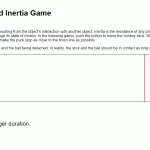Share this
Does your child stare at their math homework and take a long time to finish it? Does your child bring home Ds and Fs on math tests? Have you been shocked by what the report card says about your child’s math grades? You are not alone. Over the years, I’ve met and helped many parents whose children struggle with math. There are common themes in their struggles. Many students face the same set of problems that result in their difficulties with math.
Math is a subject that many students find challenging and often struggle with throughout their school years. For some, it might be the complicated arithmetic operations or the seemingly obscure concepts that leave them feeling overwhelmed, while others may simply have difficulty grasping the abstract nature of the subject. As a parent, it can be disheartening to see your child struggle in math, and it’s important to understand the root of the problem to effectively help them overcome their difficulties.
In this article, we’ll explore the common reasons why your child may be having difficulty with math and provide practical tips on how you can support their learning journey. By understanding the specific challenges your child faces and providing targeted assistance, you can help them gain confidence in their math abilities and thrive in the world of numbers and equations.
Why should we care about math?

Math is an essential subject for students to learn, especially during their elementary years. The reason for this is twofold: first, mastering math skills at an early age provides a strong foundation for understanding more complex concepts later on; and second, math is a subject that permeates many aspects of daily life, making it all the more crucial to develop math skills early on. In fact, according to a study, early math skills were a stronger predictor of later academic achievements than reading, attention skills, socioemotional behaviors, and social skills.
As children progress through their school years, they will encounter a multitude of subjects that require math, whether directly or indirectly. For instance, the fields of science, technology, engineering, and even economics all demand a solid grasp of mathematical principles. Additionally, math plays an important role in understanding the world around us, from measuring distances or calculating time to making financial decisions. In fact, a study conducted by the Pew Research Center found that 73% of adults in the US believe that math is crucial in preparing students for the real-life workforce. Additionally, 93% of adults agree that success in math helps students become successful in life. By instilling a solid mathematical foundation within our children during their formative years, we pave the way for them to excel in various academic disciplines and careers.
How do I know my child is struggling in math?

There are several telltale signs indicating that your child may be struggling with math. Being aware of these signs enables you to identify your child’s difficulties and provide the necessary assistance. Research suggests that early intervention in math proves to be more effective than support offered at later grades.
- Frequent difficulty with basic operations such as counting, addition, and subtraction
- Struggling to understand mathematical language
- Constant reliance on finger counting past early development stages
- Slow speed in solving math problems and frequent mistakes
- Inability or unwillingness to communicate understanding
- Anxiety towards math (saying something like “Math is not for me”)
- Putting off math homework until the last moment, resistance in doing math-related tasks
- Low self-confidence in math skills
- Consistently poor test scores or grades in math subjects
Possible reasons why your child is struggling in math and how you can help
There are many factors that may be contributing to your child’s difficulties in math. Identifying the factors that are affecting your child is crucial in determining the best approach to help them improve.
I’ve compiled a list of possible reasons why your child is struggling in math. Granted, there are many factors and many of them are interrelated. Perhaps only few of these factors apply to your child. Or, your child may be suffering from many of them. Identifying even one factor and helping your child overcoming it can make a significant difference in how your child perform in math and how your child feel about math. Let’s take a look at the list now.
Reasons related to your child’s math skills

Lacking foundational understanding
One common reason why children struggle with math is a lack of fundamental understanding. This means that they may not have a solid grasp of basic math concepts from their previous grades, causing them to fall behind in more complex aspects of the subject. For example, a child who doesn’t understand what multiplication is or when to use it will have trouble understanding or doing 2-digit by 2-digit multiplication. When a child hasn’t developed solid understanding of ratios and fractions by the end of middle school, it’ll be difficult for them to comprehend advanced algebra topics such as rational functions in high school. When foundational knowledge is missing, it can be challenging for children to understand what they are studying in school, which can hinder their progress and even result in a negative attitude towards math.
How you can help:
- Regularly review basic math concepts with your child, ensuring they have a solid understanding of numbers, addition, subtraction, multiplication, and division.
- Help your child identify and address any gaps in their mathematical knowledge by working through math problems together and discussing the reasoning behind the solutions.
- When you discover your child is lacking knowledge or skill that he or she should have developed already, go back to the earlier concept and review them with your child.
- Encourage your child to practice math frequently using workbooks, online tutorials, or educational games to solidify their fundamental understanding of math concepts.
- Consider hiring a tutor or seeking extra support from their teacher if your child continues to struggle with basic math concepts despite your efforts.
- Be patient and supportive, reinforcing the importance of a strong mathematical foundation and reminding your child that improvement takes time and practice.
Lack of foundational skills
One of the reasons your child might be struggling with math is a lack of foundational skills, the ability to perform mathematical operations with ease. These skills include basic mathematical operations such as addition, subtraction, multiplication, and division. For example, if your child has not mastered addition and subtraction and still relies on finger-counting by Grade 3 or 4, it will be difficult for your child to solve more complex problems such as calculating the area of a table or tallying up results of a survey. Similarly, when a child is struggling with solving an equation, he or she will have a hard time modeling linear functions. The difference between “foundational skills” and the “foundational understanding” mentioned above is that your child may have understood certain concepts such as when to use multiplication, but still has not attained fluency in doing the mathematical operations. “Fluency” here means that your child can perform required operations accurately, quickly, and confidently. In order for your child to grasp and master concepts and skills that they are learning in school, they must become fluent at mathematical operations that they are expected to know at their grade level.
How you can help:
- Identify the specific areas where your child needs improvement and provide targeted learning materials and exercises to strengthen their fluency in those areas.
- Work with your child’s teacher to determine any gaps in their foundational skills and develop a plan of action to address them.
- Consider hiring a tutor or enrolling your child in a math support program to provide personalized instruction and help them build their foundational skills.
- Encourage your child to do calculations without a calculator or computer as much as possible when they are in elementary school. In my learning center, we strictly banned the usage of calculators until Grade 8. While some may say this is too drastic, this policy was very effective in developing automaticity and confidence.
- Incorporate math into daily activities and real-life situations. Make math relatable and enjoyable while helping your child become more confident and comfortable with numbers. For example, let your child add up the amount of allowance she is getting each week or ask your child to calculate the tip you should leave at a restaurant.
- Be patient and encourage your child through their learning process, celebrating even small successes, as building a strong foundation takes time and effort.
Lack of understanding and reliance on rote memorization
One possible reason children struggle with math is their lack of understanding of mathematical concepts and a heavy reliance on rote memorization. Instead of developing a deep understanding of the underlying principles and processes, they simply memorize formulas and methods, which limits their ability to apply their knowledge to new and unfamiliar problems. If you ask your child where he got the answer or how he did it and all he can say is “I don’t know,” then, your child may be suffering from this problem. Lack of understanding prevents children from fully grasping the meaning behind the math, making it difficult for them to excel in more advanced math classes as they progress through school.
How you can help:
- Encourage your child to focus on understanding the “whys” behind mathematical concepts or methods, rather than just memorizing formulas and procedures.
- Use visual aids, like number lines, graphs, and charts, to help your child grasp mathematical concepts more easily.
- When working through math problems with your child, make sure to ask them to explain the reasoning behind each step. Be interested in the problem-solving process, not just the final answer. Ask your child, “How did you come up with this idea?” or “Why do you think your teacher did this?” Engage your child to think. Build a habit of questioning the reasoning behind the formulas and procedures.
- Help your child look at a concept from multiple angles. This is a strategy used by many teachers. For example, when learning fractions, you can show what fractions are by using physical manipulatives or look for examples of fractions at home, such as half a pizza or quarter of a glass of water. You can relate fractions with time, such as a quarter (1/4) of an hour, or relate it to percentage such as percentage of restaurant bill that you pay as a tip (20% being equal to 1/5, for example).
- Provide your child with opportunities to apply their math skills in real-world situations, such as calculating the tip on a restaurant bill, measuring ingredients while cooking, or figuring out the distance between two locations on a map.
- Seek additional resources, such as tutoring, online videos, or math-focused apps and games, that provide alternative explanations and methods for solving problems.
Underdeveloped problem-solving or critical thinking abilities
Another possible reason that your child may be struggling with math is underdeveloped problem-solving and critical thinking abilities. These skills are crucial for understanding and solving mathematical problems, as they help kids analyze information, identify patterns, and think logically. If your child understands the concepts and can do basic operations, but is struggling with word problems and application questions, then, your child may not have developed problem-solving abilities or techniques. At lower elementary school grades, children are not expected to have developed these skills. However, as they finish elementary school and go into middle school, they should have developed some problem-solving skills. Many children who are not accustomed to problem-solving may “freeze” when they are faced with a problem that looks complex, does not resemble textbook questions that they practiced, or involves multiple steps. Fortunately, problem-solving and critical thinking abilities can be nurtured and developed.
How you can help:
- Help your child break down a complex problem into smaller, manageable steps. Understand that a complex task requires many small steps. Break down a complex problem into smaller part, and concentrate on one part at a time.
- Try the problem-solving approach below:
- Understanding what you know: Organize what’s given to you in a question. Jot down what you know from the given question or task. Visualize it by drawing a diagram, if applicable.
- Figuring out what you can: Looking at what you know, what information can you further figure out? Find them out and put them on paper. The more information gained, the easier it is to have new ideas and make connections.
- Thinking about how your can use the information: Think about how you can use the information that you have so far to solve the problem. This is where a student has to strategize using the information they got in steps 1 and 2 above.
- Know that problem-solving is a trial-and-error process, not a straightforward process. It’s natural to take a wrong approach, realize it, and try another approach from scratch. The important thing is get started on a problem and make progress one step at a time.
- Praise your child’s progress even if it doesn’t lead to the final answer. One significant hurdle that students face is “freezing”: when they are faced with a difficult-looking problem, they just give up and say “I don’t know” or “It’s too hard”. Just jotting down the given information is a good progress. Figuring out one addition piece of information from the given information is also a good progress. For example, if your child has to calculate how many water bottles it takes to fill up a pool as a part of school project, ask your child to get started by just jotting down what she knows and doesn’t know. Then, ask your child to find out one thing no matter how small, such as measuring the height of the water bottle or how deep your backyard pool goes. Praise your child if she makes even a small progress.
- Encourage your child to participate in activities that develop problem-solving and critical thinking skills, such as puzzles, board games, strategy-based games, challenging problems, or math contest questions. The more exposure your child has to problems that require thinking, the faster your child’s critical thinking ability develops.
- Discuss real-life situations where math is applied. Help your child see the relevance of math skills in daily life and encourage them to think critically about these scenarios.
- When solving math problems, tell your child to verbalize their thought process. Model this behavior for your child. “What do I know already?” “How can I find …?” “What should I do now?” “How can I use the information that I already have?”
- There are tutors or tutoring programs specializing in problem-solving in math. If the above is overwhelming, seek the help of these tutors or tutoring programs.
Inadequate practice or low automaticity
One possible reason why your child might be struggling with math is inadequate practice or low automaticity. Automaticity refers to the ability to perform basic math calculations quickly and accurately without conscious thought or attention. It is essential for students to develop automaticity in their math skills in order to progress in more advanced math concepts. Even if your child understands a concept, if he has not practiced the mathematical operations behind it to the level of fluency, he may still find himself struggling to keep up in school or do well in tests. This is because there is a limited amount of information that your brain can hold at one point in time (called working memory), and when students with low automaticity tries to tackle more complex problems, their working memory is occupied with basic mathematical operations; in other words, the student is too focused on basic math operations to do higher-order thinking. This is why practicing to the point of fluency is so important. I prepared many students for various math contests when I was teaching in the past, but I have not met one student who was not fluent in calculation skills and still excelled in a math contest. Moreover, if your child has not developed automaticity, she might not be able to finish a test in time.
If your child is doing mathematical operations too slowly or not having enough time to finish a math task or math test, it is possible that your child hasn’t practiced enough to develop fluency in the math topic.
How you can help:
- Encourage regular practice outside of just the class time. Provide engaging materials and resources like fun math worksheets, math games or puzzle books for them to use at home.
- Break down topics into smaller components and set specific practice goals. For example, target mastering addition and subtraction before moving on to multiplication and division.
- Make math a part of everyday life. Involve your child in real-life situations necessitating math, such as cooking, shopping, or budget planning, to help them see the importance and practicality of math.
- Monitor your child’s progress and identify weak areas where more practice might be needed. Provide additional practice materials or worksheets to focus on strengthening those areas.
- Consider using digital tools or mobile apps designed to improve math automaticity. There are various resources that offer engaging practice exercises to help your child develop their skills.
- Seek help from a tutor or extra support from their teacher if necessary. They can provide additional guidance and individual attention to help your child overcome their struggles.
Lack of communication skills
Another possible reason for a child struggling with math could be due to inadequate communication skills. Math is not just about numbers and equations; it also involves understanding and explaining concepts, reasoning, justifying solutions, and effectively communicating ideas to others. In addition to testing students’ understanding and skills, teachers also assess their ability to communicate mathematical ideas. For instance, a student should be able to show their work (i.e. the steps taken to arrive at the solution) using accepted mathematical conventions during a test. Moreover, a student needs to be capable of explaining their ideas or methods when doing a presentation or project in their math class. One student I taught had a solid foundation in math and understood everything she learned in school, but she was still doing badly on tests. After realizing she was struggling with showing her work, a little assistance in mathematical communication immediately helped improve her test performance by 20%.
How you can help:
- Take a look at your child’s homework or test. Are they properly showing their work? Are they using accepted mathematical conventions, such as correctly using multiplication and division symbols or accurately writing decimal numbers? Is the work on their test organized and easy to read? If not, guide them in understanding how to show their work or communicate their ideas properly.
- Encourage your child to discuss math problems and assignments with you, their teachers, or their peers. This can help enhance both their understanding of the subject and their communication skills.
- Encourage your child to assist her younger siblings or friends with math. Peer tutoring is an extremely effective method for enhancing communication skills. Throughout the peer tutoring process, your child will need to explain mathematical concepts clearly to ensure that the other person understands them.
- Help your child practice explaining their reasoning when solving a problem, both verbally and in writing. Observe how they are explaining or writing down their work. If they are not using standard mathematical notations or representations, suggest ways to correct it.
- Offer support and encouragement by praising their efforts to communicate their understanding of mathematical concepts, even if they may not have fully grasped the material yet.
- Talk to your child’s teacher about your concerns. Ask the teacher for suggestions that you can implement at home.
Ineffective test-taking strategy
One potential reason why your child might be struggling with math is using ineffective test-taking strategies. Ineffective test-taking strategies can result from anxiety, lack of time management, failure to understand the question or overlooking important instructions on the test. Consequently, this approach can lead to lower scores and decreased confidence in their math abilities, regardless of their actual competency. To find out whether test-taking strategy is the culprit, you need to take a look at your child’s test. Did your child finish the test on time? Did your child understand the instructions for each question? Did your child show work where necessary? Was the work organized and easy to see? Where did the teacher take off marks? By analyzing your child’s graded tests, you can gain significant insights into the reasons behind your child’s low grades.
How you can help:
- Practice time management techniques together, such as allocating a specific amount of time for each test question or setting a timer during preparation tests.
- Use the following tips when doing a test:
- Don’t get stuck on one question. If you tried and still don’t know how to do it, circle the question and go to the next one.
- Do the easier questions first before the harder questions. You can easily get marks doing easier questions, so these ones should be done, first.
- If you don’t know the answer to a multiple choice question, eliminate the wrong choices and guess one from the remaining choices.
- Underline the important part of a question or jot down the given information on work space, first, before attempting the question.
- Make sure to show work in a neat way. Use methods that are taught in school, where possible. Some teachers don’t like to see methods taught outside of school. Use proper math terms, math symbols, and math conventions.
- For longer questions such as critical-thinking questions, if you don’t know the answer, show your partial work as much as possible to get part marks.
- After a question is done, briefly review the answer and make sure the answer makes sense. For example, if a question is asking about the weight of a person, “3000 kg” would probably not going to be the right answer.
- Know the time limit and develop a sense of how fast each question needs to be done. Keep track of the time as you do the test so that you’ll be able to finish all questions.
- Try to leave some time for reviewing the test after all questions are done.
- Discuss stress and test-taking anxiety with your child, exploring ways to manage emotions, like deep breaths or mindfulness exercises and free writing before the test. (See the section on test anxiety, below).
- If your child cannot finish a test or do bad on a test, other factors may be responsible as well. These include language barrier (see below) or insufficient practice (see the section on Inadequate practice or low automaticity, above).
Reasons related to other areas of learning

Language barriers
Language barriers can be a significant reason why a child might be struggling with math. Just like any subject, math has its own language and terms that students must understand to be successful. If English is not your child’s first language, he or she may have a hard time understanding his or her teacher’s lessons, understand the homework, or understand the questions on a test. Word problems and math instruction can be challenging even for native English speakers, and much more so for students who are not fluent in the language. As an immigrant myself, I struggled to comprehend English on math textbooks and tests during the first couple of years in Canada. It is frustrating because you know you can do the math; you just don’t understand the language and how to express your thoughts on paper.
How you can help:
- Communicate with the teacher or school for language support, such as ESL or ELL resources, to help your child improve their English proficiency.
- Utilize bilingual textbooks or materials, if available, to help your child understand math concepts in their native language. Make sure that your child does not fall behind in mastering the necessary topics outlined in the curriculum.
- Ask your child’s teacher if your child can use a dictionary during a test.
- Practice math vocabulary with your child, focusing on key terms that they encountered in their math class.
- Encourage your child to ask questions and seek clarification when they do not understand a math problem or concept.
- Find a tutor who is fluent in both English and your child’s native language so your child has the support they need during the learning process. Ask the tutor to focus on math vocabulary, how to read a math question, how to communicate the thought process behind solving a question, and how to show work in English.
- Ask your child to create flash cards or vocabulary notebook with English words on one side and the same words in the child’s native language on the other side.
Learning disabilities
Presence of learning disabilities may hamper your child’s math progress. These are neurological conditions that affect the way an individual processes, understands, and applies new information. Dyscalculia is a common learning disability specifically related to mathematics, making it difficult for the affected individual to comprehend numbers and arithmetic operations. A child with a learning disability might have a harder time grasping mathematical concepts, leading to frustrations and lower performance in the subject.
How you can help:
- Consult with a professional to assess and diagnose potential learning disabilities. Don’t try to tackle the issue on your own.
- Seek specialized help from qualified educators who are trained in working with learning disabilities, such as a resource room teacher or a private tutor.
- Incorporate learning strategies that are tailored to your child’s specific needs and support their learning style. For example, using visual aids and manipulatives can be helpful for a child with dyscalculia.
- Ensure that your child receives appropriate accommodations at school, such as extra time on exams or modified assignments, in order to give them an equal chance to succeed.
- Be patient, understanding, and supportive. Encourage your child to develop and maintain a positive attitude towards learning, while also recognizing their unique strengths and abilities.
Reasons related to your child’s study habits

Lack of review or practice
One of the most common reasons for children struggling with math is the lack of review or practice. It’s essential for students to revisit previously learned concepts and practice problem-solving skills to better understand mathematical concepts. Before taking any quizzes or tests, a child should review what they have learned in school and complete review questions to reinforce the ideas. In essence, the child should develop a solid understanding and achieve a level of fluency, meaning they can answer questions quickly and accurately without difficulty or struggles.
Additionally, it is crucial to ensure that your child does not just cram before a test, as this approach only engages their short-term memory. To store the learned material in their long-term memory, your child should engage in periodic math practices. Doing periodic practices and reviews helps your child remember important concepts and skills even after a test.
How you can help:
- Have your child follow the following sequence of review at home:
- Review the school lessons by reading over the school notes.
- Do the school homework. If possible, check the answers for your child. Praise the parts that your child got right and give feedback on where your child got wrong. Note the questions that your child had difficulty answering.
- Before any quizzes or tests, review the school lessons again and do more review questions. Revisit the questions that your child had difficulty on in the step 2.
- Set aside dedicated time for math practice each day, ensuring a consistent learning routine. Having a routine helps can give your child a sense of stability and allow your child to focus on the task.
- Work closely with your child’s teacher to understand your child’s strengths and weaknesses in math, and tailor reinforcement exercises accordingly. For example, if your child is lacking some foundational skills, you can have your child do exercises targeting these areas of weakness.
- For younger children, find and use resources like workbooks, apps, or websites to provide engaging practice opportunities. For older children in high school, the primary focus should be on their school homework and additional resources should be considered only as a supplement. Usually, school teachers create their tests based on the class materials and homework given to students.
- One potentially useful idea is to incorporate problem-solving activities in routine tasks like shopping, cooking, or measuring distance. Create a habit for your child to use their math skills in their daily life.
- If your child is unwilling to study or do math homework, this could be a symptom of a number of other factors such as low self-confidence, math anxiety, or lack of interest. These problems are described elsewhere in this article. In some cases, tackling these problems might be more effective than simply forcing your child to do practices.
Poor organization and time management
One significant reason why a child might struggle with math is poor organization and time management skills. When a student lacks these skills, it becomes challenging for them to manage their workload, keep track of assignments, allocate enough time for study sessions, and maintain focus during lessons. As a result, they might consistently fall behind in their math work, feel overwhelmed, and ultimately develop a negative attitude towards the subject. The good news is, there are many ways that you can try to help your child manage their time better.
How you can help:
- Help your child create a simple and effective organizational system for their math notes, worksheets, and textbooks to keep everything in order and easily accessible.
- Encourage your child to use a planner or digital app to keep track of assignments, tests, and due dates, so nothing falls through the cracks.
- Have your child create a to-do list every day and have them check off the item that they finish. This will create a sense of accomplishment when a task is finished.
- Teach your child to break down a complex task such as a large project into smaller, manageable steps. Have your child write down what they want to accomplish in the to-do list, as mentioned above.
- Establish a consistent homework and study routine. Set a fixed time to study math daily.
- Monitor your child’s progress and challenges in organizing their math work, providing support and reassurance as needed.
Insufficient resources
Does your child have sufficient resources to learn and practice math? Insufficient resource means that they may not have access to adequate materials or support that can aid in their learning process. It could be a lack of textbooks, online resources, or poor instruction from their math teacher. Sometimes, children don’t get enough practice materials from their school so they don’t develop the necessary automaticity, the ability to do mathematical operations with fluency and accuracy.
How you can help:
- Provide your child with a variety of math resources such as textbooks, workbooks, and online learning platforms that offer supplementary materials, practice questions, and interactive games. You can find these resources in Amazon, general bookstores, and bookstores specializing in educational materials.
- Check your local library for math resources. Your local library may have free math textbooks for rent as well as free online resources.
- Make sure that the extra materials you give your child aligns with the math curriculum in your state or province. For example, if you live in Ontario, you’ll want to use materials that aligns with the Ontario curriculum.
- Communicate with your child’s teacher to discuss their progress, needs, and any additional support that can be provided in school.
- Consider hiring a math tutor or enrolling in a math learning center if your child requires more personalized assistance and can benefit from a one-on-one approach.
Missing or late homework or project submission
One reason your child might be struggling with math is due to missing or late homework or project submissions. Falling behind on assignments can lead to gaps in understanding and increased stress, making it even more difficult for your child to grasp new concepts. When a child misses crucial practice opportunities, they may feel overwhelmed and disheartened, creating a negative cycle that can hinder their overall progress in math. Moreover, not completing school homework or projects and submitting them in time has a negative impact on your child’s report card. Many teachers take into account the homework completion, assignments, and projects when giving a final report card grade.
How you can help:
- Help your child establish a regular homework routine with a dedicated space and time for completing assignments.
- Encourage your child to break down larger projects into smaller, manageable tasks to reduce the likelihood of procrastination and not finishing the projects in time.
- Consider using a planner or calendar to help your child visualize upcoming deadlines and manage their time effectively. Create a to-do list, and have your child check the items off as they complete it.
- Reinforce the importance of asking for help when needed, whether from a teacher or a peer, to ensure they don’t fall behind.
- If necessary, seek additional support such as tutoring, learning resources, or joining a study group to help your child catch up and stay on track.
Inconsistent attendance or skipping school
Inconsistent attendance can have a significant impact on a child’s ability to grasp mathematical concepts. If a child misses school days, they could miss crucial lessons, class discussions, and activities that may not easily be made up or understood independently. Missing out on these opportunities can hinder their progress in math and lead to low grades attained on tests and increased difficulties in the subject.
How you can help:
- Ensure your child has a consistent daily routine in attending school and understands the importance of attending school regularly.
- If your child misses school, encourage them to ask their friends for class notes and homework. Help your child study the content of the missed lesson and complete the missed homework.
- If needed, communicate with the school and your child’s teacher to be informed of any missed lessons or activities, and work with your child to create a plan for catching up.
- Seek additional support, such as tutoring or online resources, to help your child catch up on any missed material.
- Address any underlying issues or obstacles that may be causing your child to skip school or have inconsistent attendance, such as social or emotional challenges, and if needed, seek appropriate professional support such as a school counselor.
Distractions at home such as distractions from social media or TV
One common reason children struggle with math is the presence of distractions at home, particularly technological distractions, such as smartphones, tablets, video games, and televisions. If these devices are turned on while your child is studying, they can divert your child’s attention away from their studies. This negatively impacts their ability to learn and comprehend material, significantly reducing the effectiveness of a study session. Furthermore, when children spend a lot of time engaging with distractions such as TV, the internet, or social media, they might not have enough time to review or complete their homework.
How you can help:
- Create a designated study space for your child free from distractions, allowing them to focus solely on their math work. When your child is studying, make sure their study space is quiet and computers, smartphones, iPad, and TV are turned off unless it is necessary for their assignment.
- Set clear boundaries and rules on screen time, ensuring ample time is allocated for study. For example, set a daily time for study and turn off devices when your child is studying.
- Encourage your child to use educational technology or apps that promote mathematical learning and problem-solving in their free time.
Limited support when needed
One possible reason why children struggle with math is limited support when needed. It’s important to remember that every child learns at their own pace, and some may require extra help and guidance to fully grasp mathematical concepts. When a child doesn’t get the necessary support, they may become discouraged, fall behind, and develop a negative attitude towards math. This can lead to a vicious cycle where the child’s confidence in their math abilities diminish, falling further behind, which in turn make them like math even less.
How you can help:
- Communicate with your child’s teacher to understand the specific areas where your child needs help and request additional resources or support.
- Consider hiring a tutor or enrolling your child in an after-school program focused on math to provide targeted help and reinforce classroom learning.
- Make learning math fun by incorporating educational games and activities that promote mathematical thinking and problem-solving skills.
- If your child wants some help with their homework, you can give some assistance, but be careful in doing so. Sometimes, homework help can do more harm than good. If you are not sure how to help your child, ask your child’s teacher for support, hire a tutor, or enroll your child in a tutoring program.
Reasons related to how your child views math or themselves

Math anxiety
Math anxiety is a common reason why children struggle with math. It is an emotional response to the subject, often characterized by feelings of fear, stress, and panic when faced with math problems. This anxiety can be debilitating, making it difficult for a child to focus, process information, and effectively solve problems. Math anxiety can stem from various factors, including negative experiences with math in the past, pressure to perform well, or a belief that one is not good at math. As a result, children with math anxiety may develop a negative attitude towards the subject, which can hinder their progress and success in math. If your child regularly avoids math-related activities, says something like “Math is not for me” or “Math is only for smart people”, or shows apprehension or fear when doing math homework, your child may have math anxiety.
How you can help:
- Help your child develop a growth mindset by praising their effort and perseverance rather than focusing on their performance or grades.
- Avoid saying things like “Math is hard and it’s not for everyone.” This will allow your child to view math as an insurmountable task. Instead, say something like “I know math is hard, but if you try your best, you’ll become so good at it!”
- Help your child improve foundational skills such as basic arithmetic. Children who developer better foundational skills tend to feel less math anxiety.
- Work with your child to identify and address the specific triggers of their math anxiety, such as a fear of making mistakes, time pressure, or comparing themselves to others.
- If you are not comfortable with math, be careful when helping your child with homework. Math anxiety can be passed from parents to children when you show negative attitude toward math. Instead, see if you can hire a tutor or let your child attend extra help sessions in school.
- Let your child do some free writing so they can express their inner thoughts, struggles, and fear about math without being judged by other people. Free writing has been shown to reduce anxiety and increase test performance of kids with math anxiety.
Parental attitudes towards math
One significant reason why children might struggle with math is the parental attitudes towards the subject. As stated above, parents can pass their math anxiety toward their children. If parents express their own dislike or anxiety for math, or frequently say things like “Math is not for everyone” or “When do you ever use this in life?”, children can inadvertently develop a negative outlook on the subject. Their parents’ fear and apprehension can cause them to believe that math is essentially difficult and inaccessible and that math is something to be feared. This leads them develop math anxiety, and as a result, they avoid investing their time or effort in learning math. Parents need to recognize and address their own attitudes towards math and be mindful of how these might affect their children’s perception of the subject.
How you can help:
- Be conscious of your own attitude and refrain from making negative comments about math in front of your child.
- Encourage and create a positive environment around math at home, making it seem enjoyable and less intimidating.
- Share stories of how math helped you with everyday situations or use math-related games and activities to engage your child.
- Talk to your child about the importance and relevance of math in different aspects of life, such as finance management, technology development, and career opportunities.
- Express enthusiasm when it comes to helping your child with math and approach difficult problems with a problem-solving attitude rather than getting frustrated.
- If you feel math is too frustrating, consider hiring a tutor or letting your child join extra help sessions at school. Ineffective homework at home often does more harm than good to your child’s learning and self-confidence.
Test anxiety
Test anxiety is a common issue that many students face, especially when it comes to subjects like math. This type of anxiety can cause your child to become overly stressed, resulting in a decrease in their ability to focus during a test. As a result, your child may get lower marks than they deserve to get. Does your child feel overly stressed or hopeless before a test? Does your child exhibit sleep disturbance, irritability, or mood swing as the date of test approaches? If so, your child may be suffering from test anxiety.
How you can help:
- Encourage open communication: Talk to your child about their feelings regarding math tests and help them understand that it’s normal to feel anxious. This can help them share their concerns and feel supported.
- Try free writing before a test. Free writing brings forward your child’s inner apprehension and fear about tests. By writing it down, your child may realize a test is nothing to be feared for, alleviating their anxiety.
- Help your child establish a consistent study routine that includes reviewing math concepts regularly. Encourage your child to do thorough review before a test. Often, anxiety toward a test is due to lack of preparation. When your child is more prepared, it’s possible that they will feel less test anxiety.
- Practice relaxation techniques: Teach your child deep breathing exercises, progressive muscle relaxation, or meditation to help them calm down and manage their anxiety before and during tests. For example, deep breathing helped me feel relaxed before stressful 3-hour exams in University of Toronto when I was a student there.
- Help your child develop a growth mindset, the idea that intelligence and one’s aptitude in doing something can be nurtured and developed. Your child may experience test anxiety because of fear of doing badly in a test. To counter this, one thing you can do is to routinely praise your child’s effort and persistence and help your child view challenges as growth opportunity regardless of the result.
- Seek professional help: If your child’s test anxiety is severe, consider consulting a school counselor or a mental health professional to provide support and resources for managing their anxiety.
Having a fixed mindset, not growth mindset
When children have a fixed mindset, as opposed to a growth mindset, they might lack motivation to improve or even fear challenges such as tests. A fixed mindset is the belief that intelligence and abilities are static and cannot be improved, which can lead to a fear of failure and a lack of motivation to learn. In contrast, a growth mindset is the belief that intelligence and abilities can be developed and improved with effort and perseverance, fostering resilience and a love of learning. Adopting a growth mindset can dramatically impact your child’s academic performance and attitude towards math.
For example, if your child believes she is smart (a fixed mindset), she fears that doing badly on a test can destroy that belief. She will, then, feel anxiety toward tests or try to avoid taking on challenges that may result in failure. If your child believes she is stupid (also a fixed mindset), she might feel powerless to study or prepare for a test. In contrast, if your child believes that he can learn anything if he puts in enough effort and time (a growth mindset), he may view tests as a good challenge; even if he doesn’t do too well on a test, he believes he can study harder next time and get a better grade.
How you can help:
- Encourage your child to view challenges as opportunities for growth, emphasizing the importance of effort and persistence.
- Praise your child’s effort and progress, rather than focusing solely on their grades or results. This helps them value the process of learning and promotes a growth mindset.
- Teach your child that mistakes are a natural part of the learning process and provide constructive feedback, helping them understand how to learn from errors and improve.
- Change the way that you praise or criticize your child. Don’t say something like “You are so smart!”, “I know math is hard for you, but let’s review for the test”. These statements contribute to the belief that intelligence is a fixed quality. In fact, students who believe that intelligence can be improved through hard work can improve their math performance over time. When your child shows you a good test result, praise by acknowledging the work that your child put in. When your child shows you a bad test result, explore ways to do better in the next test with your child.
- Share stories and examples of famous individuals who succeeded through hard work, dedication, and resilience to reinforce the idea that abilities can be developed.
- Model a growth mindset yourself by embracing challenges, demonstrating persistence, and celebrating your own learning and growth.
Low self-confidence or low self-efficacy
Low self-confidence or low self-efficacy in math can be a significant reason why your child might be struggling. Self-confidence is general belief that a person is a capable person, capable of achieving things that he or she puts his mind to. Self-efficacy (in math) is a specific belief that a person is good at math and can perform well in math-related tasks. Both concepts are similar, and they both influence how children approach problems and challenges. If they lack confidence in their ability to solve math-related tasks, math can become a daunting and frustrating experience. Children may begin to feel defeated and avoid practicing, making it more difficult for them to improve their skills and understanding of math concepts.
If your child often says that math is not for them or they can’t do well in math no matter how much they tried, they have low self-confidence or self-efficacy in math.
How you can help:
- Actively encourage and praise your child’s efforts and progress, no matter how small, to help build their confidence.
- Offer a supportive and non-judgmental environment for your child to practice and make mistakes, emphasizing that mistakes are a normal part of the learning process. I used to tell my students that if they are not making mistakes, they are not learning anything useful.
- Give your child a success experience in math. To do this, help your child become good at one area in math, such as multiplication or geometry, through a lot of teaching and practice. Let your child see that success in math is not impossible.
- Identify your child’s strengths and acknowledge them. When you look at your child’s completed homework or test result, praise about the areas that your child did well first, instead of criticizing about where your child got wrong.
- Consider hiring a tutor, joining a study group, or finding other resources that can provide personalized instruction and support. Improvement in understanding and skills may lead to better self-confidence.
- Be aware of how you discuss math and learning in general, and model a positive attitude towards tackling challenges. Don’t show or voice your own insecurity or anxiety toward math to your child.
Lack of interest or motivation
One common reason why a child might be struggling with math is due to a lack of interest or motivation. When children don’t find the subject engaging, they are less likely to put in the required effort and dedication to overcome challenges and learn effectively. A child may not be motivated in learning math for various reasons, one of which is the inability to see its relevance in real life. They might struggle to find a connection between the mathematical concepts they learn in class and how they can be applied outside the classroom. Additionally, low self-confidence can also contribute to a lack of motivation, as they might feel defeated or overwhelmed by the subject, believing they simply cannot grasp the material. Furthermore, relying on rote memorization rather than understanding the concepts properly can make math very boring. In my experience, students who have developed good understanding and good skills often enjoy solving problems in math.
If your child routinely puts off math homework or is unable to focus on math tasks, it’s possible that your child hasn’t developed interest in math.
How you can help:
- Identify your child’s interests and find ways to make math relevant to those interests. For example, if your child enjoys sports, use math problems that involve scoring or statistics to engage them.
- Create a positive and encouraging environment for your child to learn math. Offer praise for their efforts, celebrate their achievements, and encourage them to keep trying when they face challenges.
- Make math fun by incorporating games, puzzles, or technology to keep your child engaged and interested in learning. This can help make math more enjoyable and relatable for your child.
- Discuss with your child why math is important and how it can be useful in their daily lives. Helping them understand the practical applications of math may increase their motivation to learn.
- Consider finding a math or STEM-related extracurricular programs for your child. These programs can provide fun math-related activities that your child can enjoy, igniting their interest in the subject.
Reasons related to your child’s school

Poor teaching methods or not understanding the school lesson
One potential reason that your child might be struggling with math is poor teaching methods. In some cases, teachers may not provide clear explanations. Some teachers might be unable to provide individual attention to students who are struggling. Also, they might not be able to provide adequate feedback to help children understand and correct their mistakes because of class size. Another possibility is that a teacher may be using project-based teaching where students have to work in groups and come up with their own answer together. Research has shown that struggling students often get left behind in such inquiry-based teaching method, and they can thrive more with direct instruction. Yet another possibility is that a child may not understand their teacher because the teacher speaks with a heavy accent.
If your child doesn’t understand the lessons in school, he or she will not be able to review, practice, or learn more advanced topics.
How you can help:
- Arrange a meeting with the teacher to address any concerns you may have about your child’s progress. Work with your child’s teacher as a team.
- Seek additional resources such as online tutorials, textbooks, or apps that use alternative teaching methods to reinforce and complement your child’s learning process.
- Consider hiring a private tutor or enrolling your child in after-school programs that focus on individualized learning and targeted math support.
- Encourage your child to ask questions during class and engage in open communication with the teacher regarding their understanding of the material.
- Develop a positive relationship with the teacher, so they know you are invested in your child’s success and are willing to work together to find the best support for your child.
Class material is too advanced or pace of the class is too fast
One possible reason for your child’s struggle with math could be that the class material is too advanced or too fast-paced for their current level of understanding. This may occur if your child is enrolled in an enriched or gifted class (a math class for high-achieving students) or if your child has advanced to a higher grade (e.g., from Grade 8 to Grade 9). To be fair, every child feels a little overwhelmed at first when attending a new math course. However, if you notice a significant decline in your child’s grades or see that they are struggling more than before, you may want to discuss their feelings about the math class with them.
Your child might tell you that the level of difficulty of the material covered in their math class is much higher than what they are used to. They might also tell you that the tests have become too challenging, or that their teacher is moving through the material too quickly, or that there are too many tests. In such cases, your child may be feeling overwhelmed or intimidated by the complex topics or the pace of the course. They might not understand the classroom material or have enough time to review, resulting in low test scores.
How you can help:
- Help your child develop a growth mindset, encouraging them to believe in their ability to learn and improve. Tell your child that a challenge, such as the math course that your child is taking, is a great opportunity for your child to improve his or her perseverance, critical thinking, and math skills.
- Offer additional resources at home to help your child better understand the material. This could include tutoring, online math courses, or educational games targeting their areas of struggle.
- Consider hiring a tutor who can help your child review and understand the class materials so he or she will not fall behind.
- Consider talking to your child’s teacher about their struggles and whether the material is, indeed, too advanced for them. The teacher may be able to recommend adjustments to the curriculum or suggest additional support to help your child catch up.
- If your child is building up too much frustration and is falling behind a lot even after trying their best in an enriched or gifted class, you and your child may want to consider switching to a standard-level class.
Large class sizes
One possible reason for your child’s difficulties in math could be large class sizes. In crowded classrooms, teachers might not have the time or resources to give individual attention to each student, leaving some children behind in grasping math concepts. Furthermore, the pace of the lessons might be too fast for some students, causing them to fall even further behind. The noisy and chaotic environment might further hinder their ability to focus and learn.
How you can help:
- Consider finding a tutor or enrolling your child in a smaller class or math program to provide more personalized attention and cater to their learning pace.
- Work closely with the teacher to identify specific areas where your child needs help. Ask your teacher what materials, such as workbooks or math apps, that can help your child improve in his or her areas of weakness.
- Create a quiet and dedicated study space at home for your child to review and practice.
- Encourage open communication with your child about their math struggles, to help them feel more comfortable discussing their feelings and asking for assistance.
Reasons related to your child’s health or home life

Change in environment or unstable environment
One reason why your child might be struggling with math could be due to a change in environment or an unstable environment. Children thrive on stable environment, and any significant changes in their surroundings, such as moving to a new school, dealing with a family crisis, or experiencing other personal issues, can have a negative impact on their learning abilities. As a result, they might find it difficult to concentrate and learn new math concepts or skills. An unstable environment can lead to increased stress and anxiety levels, which may impede their learning progress.
How you can help:
- Communicate with your child about any changes happening in their life, and create a safe space for them to express their feelings and emotions.
- Establish a stable and consistent routine at home to provide them with a sense of security and stability.
- Encourage your child to participate in extracurricular activities that promote stress relief and personal growth, such as sports, arts, or clubs.
- Offer additional support by checking in with their teacher, hiring a tutor, or engaging in supplementary educational resources or programs to reinforce their math skills.
- Speak to a school counselor, therapist, or mental health professional if it’s apparent that stress or anxiety is the primary cause of your child’s struggling in math.
Health issues
Another potential reason why your child may be struggling with math could be due to health issues, both physical and mental, which can affect their academic progress. For example, a child who is experiencing chronic pain is more likely to miss school and attain lower grades. Mental health issues, such as ADHD (Attention Deficit Hyperactivity Disorder), can be a problem as well; they can make it harder for the child to sit still, maintain attention, and follow through on tasks – crucial components to succeed in math lessons.
How you can help:
- Stay in communication with your child’s teacher and the school nurse to monitor any health issues affecting your child’s performance in school.
- Ensure your child receives appropriate medical care and regular check-ups to address any health problems that may arise.
- Consider seeking the help of a specialist or counselor to provide support for mental health issues, such as ADHD, to develop tailored strategies to improve focus and attention in a learning environment.
- Establish a consistent daily routine that provides ample time for rest and physical activity, promoting a healthy balance between academic and physical well-being.
- Practice patience and understanding about your child’s health issues and continue to encourage their efforts, emphasizing improvement rather than just focusing on the end result in math.
Insufficient Sleep
An often overlooked reason why children might struggle with math is insufficient sleep. Contrary to popular belief, children can indeed suffer from insomnia. I once had a Grade 9 student suffering from persistent insomnia, and she found it difficult to concentrate in school and often missed classes. Sleep is crucial for optimal cognitive functioning; when children don’t get enough sleep, retaining and processing information becomes a challenge, which could severely impact their overall learning including math.
How you can help:
- Establish a consistent sleep routine to ensure your child gets enough rest each night, aiming for 8-10 hours.
- Monitor and limit screen time, especially before bedtime, as exposure to blue light from electronic devices can disrupt sleep patterns.
- Encourage physical activity during the day, as exercise has been shown to promote better sleep.
- Provide a comfortable and quiet sleep environment, removing distractions that could prevent your child from falling asleep or staying asleep throughout the night. You can try blackout curtains to make the bedroom completely dark at night.
- Consider speaking with a healthcare professional to assess whether there may be a medical cause for your child’s sleep issues and discuss potential treatments.
- Know that often, insomnia comes from psychological factors rather than physiological ones. For example, anxiety disorders, obsessive-compulsive disorder, depression, and bipolar disorders can cause insomnia. If this is the case, over-the-counter sleep medications and in-home remedies may not work. You may need to consult a therapist or psychiatrist specializing in child or adolescent psychology for help.
Insufficient Nutrition
Insufficient nutrition may be a surprising factor that could contribute to your child’s struggles with math. Proper nourishment is essential for the healthy development and functioning of the brain. When your child does not receive adequate nutrients from their diet, it may affect their cognitive abilities, including memory, concentration, and problem-solving skills, all of which are critical for math success. Poor nutrition has been linked to increase in school absences and negative impact on the cognitive development of children, while proper nourishment has been linked to improved cognition, concentration, energy levels, and psychological well-being.
How you can help:
- Ensure your child is eating a balanced diet, rich in essential nutrients like proteins, healthy fats, vitamins, and minerals. Consult a nutritionist or pediatrician if necessary.
- Limit the consumption of processed and sugary foods, which may contribute to poor brain function and decreased focus.
- Provide your child with regular meals and snacks at consistent times throughout the day to maintain stable blood sugar levels and support their focus during study sessions.
- Never skip breakfast! Breakfast has been shown to reduce aggression and disciplinary problems.
- Consider vitamin and mineral supplements if your child’s diet is lacking in specific nutrients. Always consult with a healthcare professional before adding supplements.
- Promote healthy habits such as hydration, exercise, and proper sleep, as they can also have a significant impact on their cognitive performance.
Collaborating with Teachers and Other Professionals

It’s essential to maintain open communication with your child’s teachers and schools to ensure they receive the necessary support. Teachers are typically more than willing to offer guidance or recommend additional resources to help students succeed. Also, enlist the help of other professionals, such as tutors, school counselors, and therapists, depending on what kind of problem your child has. Don’t try to tackle the problem on your own. And, don’t think that having a problem means your child is doomed to a life of failure in math. Most of the issues mentioned in this article can be overcome. I’ve worked with students with learning disability, attention deficit disorder, low foundational skills, low motivation, or language barriers, and most of them eventually became successful in getting into university and starting the career they wanted. By working collaboratively with the professionals and staying proactive and positive, you can help your child overcome their struggles in math and instill a lifelong love for learning.
Conclusion
Struggles in math are not uncommon among children, but with proper support and a tailored approach, you can help your child overcome these challenges. By understanding the possible reasons for their struggle and implementing the strategies, you’ll be setting them on a path toward improvement and success. Remember to remain patient, supportive, and communicative with your child and their educators, and watch as they transform their math struggles into strengths.
Richard Zhang, M.Ed., is an educator and a software developer with a Masters degree in education from University of Toronto and an immense passion for education and learning. Until the pandemic, Richard owned an award-winning learning centre in Toronto. For 15 years, he has taught and mentored hundreds of elementary, middle school, and high school students succeed in academics. He is also an app developer specializing in web and mobile application in educational and business sectors.











